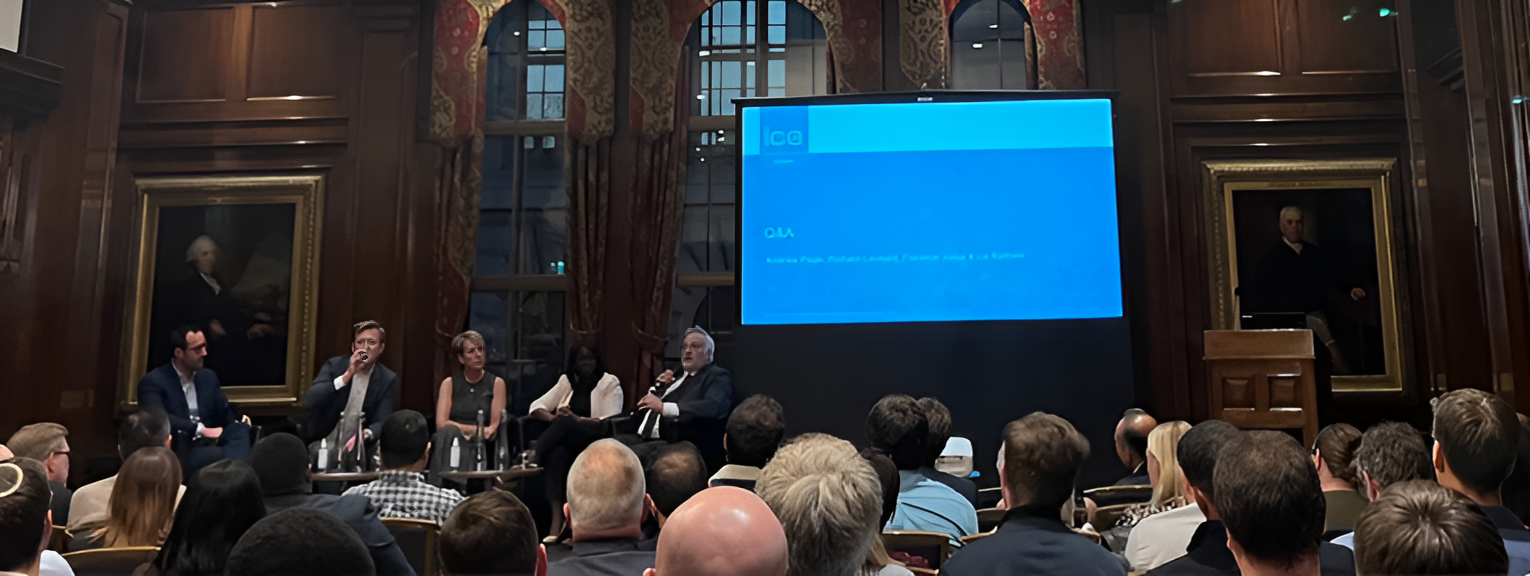Last month, a few of the ResoLex team attended the ICE’s Reimagining Delivery Models: a Panel Discussion on the Future of Project 13 and Beyond lecture. After a welcome from Julio Lacorzana, Manager in Infrastructure & Capital Projects Advisory at Deloitte, the evening presented an opportunity to hear thoughts from the panel of speakers:
- Florence Julius, Director in the Infrastructure and Capital Projects Advisory Team at Deloitte;
- Richard Lennard, Executive Commercial Director at New Hospital Programme;
- Liz Baldwin, Director of the Southern Integrated Delivery Alliance at Southern Renewals Enterprise;
- Andrew Page, Head of Commercial Services at Anglian Water Services.
Andrew and Richard were invited to give some reflections from their experiences of implementing Project 13 approaches at Anglian Water and on the New Hospital Programme, respectively, ahead of a panel discussion and Q&A with all four speakers. We have taken some time to capture a summary of our team’s key takeaways from the evening.
Andrew Page explained that Anglian Water is using an integrated framework approach and is part of an alliance that has heavily relied on Project 13 principles to deliver success. Andrew also stressed that the key focus for an integrated team is on outcomes, not outputs along the way. Andrew explained that after many years of learning through alliancing, Anglian Water understood that the commercial approach is key. Setting up the right commercial approach to incentivise the desired collaborative behaviours underpins the achievement of successful outcomes. Andrew’s statement that “what delivers outcomes is relationships” resonated deeply with our experience of working with project and programme delivery teams.
Richard Lennard began his talk by introducing the New Hospital Programme and its aims and objectives, and he recognised the tension between local and national challenges and requirements that needs to be managed through the programme. Richard explained how the programme is developing a new approach to delivering hospital infrastructure, bringing greater value by developing an ‘Enterprise of Enterprises’ mindset with a supplier and contract ecosystem. The mindset will focus on the following principles:
- Longevity – building long-term relationships
- Parity – no one has all the answers, everyone comes to this as an equal
- Trust – hear everyone’s voices and solutions
- Alignment of outcomes – patient first
The panel discussion and Q&A time posed many insightful thoughts into the future of delivery models, here are some of our key takeaways:
- It is important to assign risk to the right owner whilst also insuring parties work together to develop risk solutions.
- Project teams have a better chance of success when the mindset is ‘if one fails, we all fail’.
- Having a purpose and aligned goals and objectives is crucial, particularly across multiple organisations. This shouldn’t be assumed, and time and effort need to be spent on getting it right.
- Not everyone can work in a more ‘collaborative’ environment. Be mindful of who is asked to do so and whether they can fulfil what might be required of them.
- We need to create a safe space for people to challenge behaviours.
- The client has to own the outcome, acknowledging that you are the most invested party as a client, but also recognising that you can’t do it on your own. Partnering rather than contracting in a traditional manner can help build the right environment for this, where each partner wants to help the other to be successful.
- Consistent, visible commitment is needed from the top of organisations to make any ethos work. Senior engagement cannot happen on a solely one-off basis – behaviour breeds behaviour.
- It’s a symbiotic relationship. You rely on each other to get things done.
- Test the relationships regularly, especially over a long period.
- Be prepared and adaptable to change the way things work. As an example, a Capable Owner should be able to say, ‘I’ve got this wrong, we need to make a change’.
- It is very important to map the governance. Collaborative models are successful when they get the balance right between governance and freedom.
